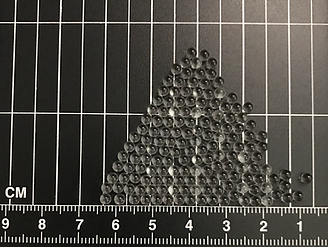Providing Precision With Laboratory Borosilicate Glass Beads 3mm
In the intricate world of laboratories and scientific research, the tools used are as crucial as the experiments conducted. The Temperature-Resistant quartz crucibles, boats and plates, stand as exemplary instruments that withstand extreme conditions while contributing to precision in various scientific processes.
Forging Precision in Heat
- Quartz Crucibles: The Crucible of Innovation
Quartz crucibles, crafted from high-purity quartz, stand as resilient vessels designed to endure extreme temperatures. Their exceptional resistance to thermal shock and high melting points makes them invaluable in processes such as metal casting, chemical synthesis, and crystal growth. Researchers and technicians rely on quartz crucibles to contain and manipulate substances at temperatures that would render traditional materials ineffective.
- Quartz Boats: Navigating the Heat with Precision
Quartz boats, slender vessels with a boat-shaped design, find application in processes that require precise sample placement and controlled heating. These boats excel in high-temperature environments, making them indispensable for activities like thermal evaporation and chemical vapor deposition. Their inert nature ensures minimal interference with the substances being processed, maintaining the integrity of experiments.
- Quartz Plates: The Foundation of Heat-Resistant Platforms
Quartz plates, flat and durable, serve as foundational platforms for a myriad of laboratory processes. Whether supporting delicate samples in high-temperature applications or acting as a substrate for thin film deposition, these plates provide stability and resilience. The optical transparency of quartz also enables researchers to observe reactions or changes in materials during experiments.
Precision in Every Bead
- Uniformity in Size and Shape
The Laboratory borosilicate glass beads 3mm, embody precision in their uniform size and shape. This consistency is paramount in applications such as chromatography, where beads act as a solid phase support for various separation techniques. The uniformity ensures reproducibility and accuracy in experimental results.

Laboratory Borosilicate Glass Beads 3mm
- Thermal and Chemical Stability
Borosilicate glass, known for its excellent thermal and chemical stability, makes these beads ideal for a range of laboratory processes. They can withstand high temperatures without undergoing deformation or releasing contaminants into the sample. This stability is crucial in applications like heating baths and as filler material in distillation columns.
- Versatility in Applications
The Laboratory borosilicate glass beads 3mm versatility extends to diverse applications, including cell culturing, sample homogenization, and precision mixing. Their inert nature makes them suitable for use with a variety of chemicals and biological substances without introducing unwanted interactions. The Temperature-Resistant quartz crucibles, boats and plates, alongside laboratory borosilicate glass beads, are silent heroes in the laboratory, providing the stability and resilience necessary for groundbreaking experiments. As science continues to push boundaries, these precision instruments remain steadfast, facilitating discoveries that shape our understanding of the world. In the crucible of scientific innovation, these temperature-resistant materials and glass beads stand as testament to the meticulous craftsmanship and engineering that propels us forward into the realms of the unknown.



